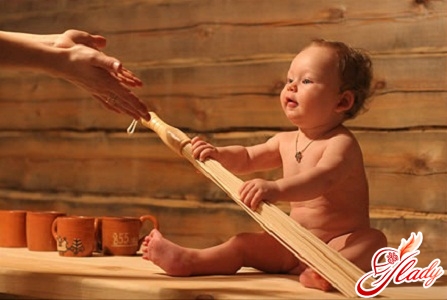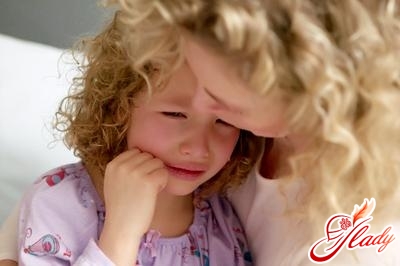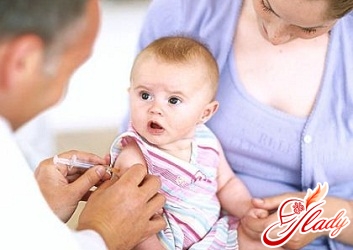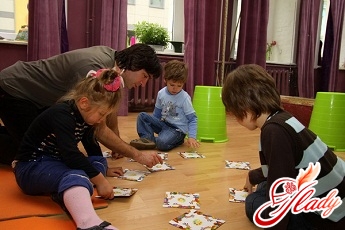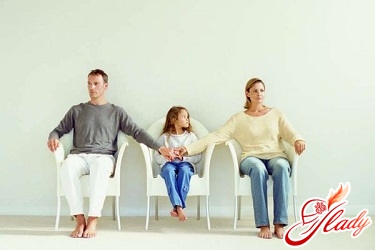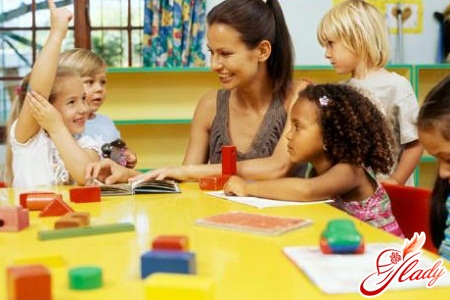 Finally, your little one has grown up and you have decided to get up and go. As a rule, parents start to sound a serious alarm when the child already starts going to kindergarten. This is obvious. The child moves into the world of social and public contacts from a closed family world. The child's lifestyle changes and leads, first of all, to minor disturbances in the emotional sphere. The adaptation period is characterized by inhibition, anxiety, emotional tension. Emotional tension affects the child's appetite, health and sleep. With a change in environment, his activity changes, he is not interested in toys at all, the level of speech activity drops. The general depressed state is due to the fact that the baby ends up surrounded by his peers and risks being exposed to foreign viral flora, which can lead to illnesses in the child. It is possible that with an insignificant degree of adaptation of the child within the walls of a preschool institution, all these symptoms disappear rather quickly. And the baby begins to happily and calmly attend kindergarten. Parents are always concerned about the question of at what age it is better to send a child to kindergarten. It is impossible to answer it unambiguously, because everything depends on the individual characteristics of the child, on his upbringing in the family and on the degree of mastery of self-service skills. Undoubtedly, a three-year-old child preparing for kindergarten has better developed speech, he feels the need for child communication, and already perfectly masters self-service skills. When a child of 1.5-2 years does not quite have all of the above qualities. A child under three years old is less adapted to separation from his mother, he is more vulnerable and weak, and this means that at this age, addiction occurs more difficult and longer, and is even accompanied by illnesses. The maturation of all mental processes and intensive physical development occurs precisely during this period. During the period of formation, they are more susceptible to mental fluctuations, and sometimes even nervous breakdowns. Changing environmental conditions and the need to develop new forms of behavior require the greatest efforts from the child, and the older the child becomes, the better he will cope with them. Much depends on how and to what extent the child is prepared for the transition to a preschool institution, and the course of the adaptation period depends.
Finally, your little one has grown up and you have decided to get up and go. As a rule, parents start to sound a serious alarm when the child already starts going to kindergarten. This is obvious. The child moves into the world of social and public contacts from a closed family world. The child's lifestyle changes and leads, first of all, to minor disturbances in the emotional sphere. The adaptation period is characterized by inhibition, anxiety, emotional tension. Emotional tension affects the child's appetite, health and sleep. With a change in environment, his activity changes, he is not interested in toys at all, the level of speech activity drops. The general depressed state is due to the fact that the baby ends up surrounded by his peers and risks being exposed to foreign viral flora, which can lead to illnesses in the child. It is possible that with an insignificant degree of adaptation of the child within the walls of a preschool institution, all these symptoms disappear rather quickly. And the baby begins to happily and calmly attend kindergarten. Parents are always concerned about the question of at what age it is better to send a child to kindergarten. It is impossible to answer it unambiguously, because everything depends on the individual characteristics of the child, on his upbringing in the family and on the degree of mastery of self-service skills. Undoubtedly, a three-year-old child preparing for kindergarten has better developed speech, he feels the need for child communication, and already perfectly masters self-service skills. When a child of 1.5-2 years does not quite have all of the above qualities. A child under three years old is less adapted to separation from his mother, he is more vulnerable and weak, and this means that at this age, addiction occurs more difficult and longer, and is even accompanied by illnesses. The maturation of all mental processes and intensive physical development occurs precisely during this period. During the period of formation, they are more susceptible to mental fluctuations, and sometimes even nervous breakdowns. Changing environmental conditions and the need to develop new forms of behavior require the greatest efforts from the child, and the older the child becomes, the better he will cope with them. Much depends on how and to what extent the child is prepared for the transition to a preschool institution, and the course of the adaptation period depends.

Making Money with Desserts: Success Stories
Evgeniya Polischuk (Fedutinova) instagram:@evgeniyafedutinovavk.com/janeshomebaking– It all started with baking for family and friends. Gradually, I started posting photos of my baked goods on Instagram – and orders started coming in. I made my first custom-made cake on October 13, 2014, and a little earlier I started making macaroons and cupcakes. You could say that the business “found me”, I am very […]

Soups are cold recipes with photos
Cold cucumber soup with yogurt and lemonsorbet from the chef of the restaurant La Taverna Alexander Zhurkin Photo: Getty Images Ingredients: Plain yoghurt – 125 g Cucumber – 150 g Lemon/lime sorbet – 50 g Cocktail shrimp – 24 g Fresh ginger juice – 1 g Lime juice – 5 g Fresh orange juice – 5 g Parsley – 1 g Pink pepper – 1 g Watercress – […]

barbeque kebab
Pork tenderloin in glaze Photo:Dmitry Bayrak/dbstudioPreparation time: 20 minutes + marinating time.Calories: 454 kcal per serving.For 4 servings: 4 pork tenderloins (approximately 300 g each), 1 onion, 2 cloves of garlic, 1 tsp. lemon zest, 1 tsp. lemon juice, a pinch of ground cumin, coriander and turmeric, 1 tbsp. vegetable […]

Pierre Duacan: dietary recipes: Ducane diet
Beetroot soup Photo:Season’S, Luxury Hotels RepresentationYou will need:· Boiled beetroot – 60 g· Fresh cucumbers – 20 g· Red radish – 20 g· Green onions – 10 g· Egg – 1 pc.· Drinking mineral water – 200 g· Salt – 1 gPreparation:· Boil the egg and beetroot.· Grate the cucumbers, radish and part of the beetroot. Put everything […]
